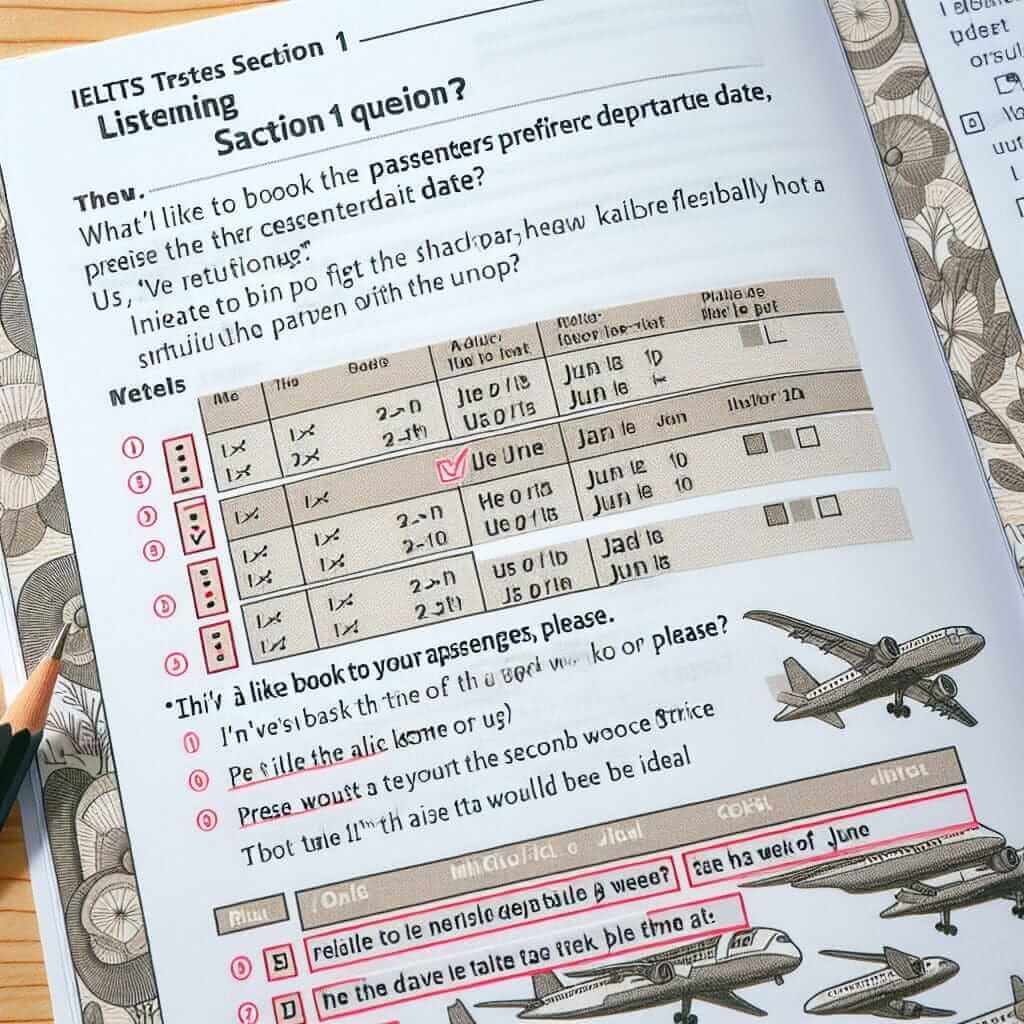Understanding the Importance of Effective Note-Taking in IELTS Listening
The IELTS Listening test is designed to assess your ability to understand spoken English in a variety of contexts. To succeed, you need to process information quickly and accurately while listening to recordings. Effective note-taking is an invaluable skill for this task. It helps you:
Nội dung bài viết
- Focus your attention: Actively taking notes keeps your mind engaged and prevents distractions during the audio.
- Remember key details: Jotting down names, dates, numbers, and other crucial information ensures you recall it later when answering questions.
- Identify patterns and connections: Note-taking helps you recognize relationships between different pieces of information presented in the recordings.
But when it comes to the IELTS Listening test, a common question arises: Can you write on the IELTS Listening test booklet?
Writing on the IELTS Listening Test Booklet: Allowed and Encouraged
Yes, absolutely! The IELTS Listening test booklet is yours to use as you see fit during the exam. You are allowed and encouraged to write on it.
Think of the booklet as your scratch paper. Here’s how you can maximize its use:
- Underline keywords: Quickly underline important words in the questions before the audio begins. This helps you anticipate what to listen for.
- Use symbols and abbreviations: Develop a personal shorthand system to save time. For example, “w/” for “with,” “b/c” for “because,” or “+” and “-” to denote advantages and disadvantages.
- Note down possible answers: As you listen, jot down any potential answers that come to mind. You’ll have time to finalize your choices later.
- Mark uncertain answers: If you’re unsure about an answer, mark it with a question mark or circle it. This reminds you to revisit it if time permits.
Applying Note-Taking to IELTS Listening Sample Questions
Let’s consider a few examples to illustrate how writing in your booklet can be beneficial:
Scenario: You encounter a multiple-choice question about a tour guide describing a historical landmark.
Question: What is the main attraction at the site?
a) An ancient temple
b) A royal palace
c) A Roman bathhouse
While listening: You might jot down “temple – gold,” “palace – queen,” “bath – mosaic” as you hear those details. This helps you keep track of the information even if you can’t immediately decide on the main attraction.
Scenario: A map-completion task requires you to label different areas of a park.
In your booklet: Quickly sketch a basic outline of the map from the question paper. As you listen, use arrows or your own symbols to indicate the locations being described.
 IELTS Listening Note Taking
IELTS Listening Note Taking
Tips for Effective Note-Taking
- Practice makes perfect: Familiarize yourself with different note-taking styles and find what works best for you. Practice with sample IELTS listening tests.
- Develop clear and legible handwriting: You need to be able to understand your own notes later!
- Don’t try to write everything down: Focus on capturing key details and information directly relevant to the questions.
- Use the transfer time wisely: You have 30 seconds between sections and 10 minutes at the end to transfer your answers. Use this time to review your notes and complete any missing answers.
In Conclusion: Your Booklet, Your Tool for Success
Writing in your IELTS Listening test booklet is not only allowed, it’s a highly recommended strategy. It’s a valuable tool to aid your comprehension, memory, and ability to answer the questions accurately. By practicing effective note-taking techniques, you can enhance your performance on the IELTS Listening test and boost your overall score.


